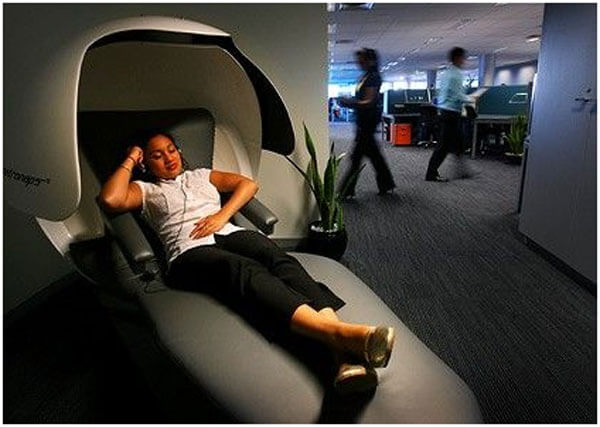The myth that burnout is part of success is wrong. Watch Arianna Huffington’s talk at the latest Glassdoor Summit and you will learn this truth. Huffington stresses the importance of rest in a physical and mental way to achieve lasting success.

The success she speaks of can be for anybody – students, mothers, and busy professionals, just to name a few – and should be for everybody. The time of pulling all-nighters to cram for a college test or finish a presentation to be given the next day at work is no more. She teaches viewers how critical sleep is and how losing sleep will severely affect you in a negative way.
Dr. Michael Roizen, the chief wellness officer of the Cleveland Clinic said, “Sleep is the most underrated health habit.” In order to make the most of our time at work and do the best quality work, we need to be getting a good amount of sleep. Huffington saw the need for their employees to be getting more rest, so established “NapQuest” rooms at the combined headquarters of AOL and Huffington Post. There are three rooms, which according to an employee are pretty much always occupied.
What do you think about offering nap times and/or nap rooms at work? Share your thoughts in the comments below.
Many companies offer incentives for their employees to get exercise or eat healthier, but the effects of someone that is not eating healthy food or exercising daily may take a while to affect their work performance. However, an employee that doesn’t get enough sleep because they are always at work will be apparent immediately. Huffington understood this after she collapsed due to exhaustion at work.
If your company is not able to offer nap spots for employees during the day, ensure that your employees are not so overworked that they have to work from 8 am to 8 pm just to get everything done each day. Provide education to your employees about the importance of sleep so that they can take necessary steps at home to improve their sleep. There are 12 simple steps you can follow to improve sleep.
- Get rid of the stimulants: Avoid caffeine and tobacco products four to six hours before sleep. Limit the amount of alcohol to one or two drinks per day or less and not within three hours of bedtime.
- Bedrooms are for sleeping: Make your bedroom an environment that induces sleep. Keep it cool, dark, and quiet. Beds should be for sleeping and sex only. Keep electronics and work materials out of the room.
- Routines: Establish a pre-sleep routine like Huffington’s. Take a nice relaxing bath and then change into comfy pajamas. Read a book, write in a journal or practice relaxation exercises. Avoid things that might stimulate or stress you out.
- Wait until you are ready: Forcing yourself to go to bed at a specific time even when you aren’t truly tired will just lead to frustration. Once again, reading a book is a great way to calm yourself and help you get tired enough to go to sleep.
- Turn your alarm clock away: Sitting there and staring at your alarm clock as the minutes slowly pass when you are trying to go to sleep or in the middle of the night will not help you sleep. If you do wake up in the middle night and can’t get back to sleep within 20 minutes, get up and read. Keep the lights dim.
- Natural light: Lighting can help you go from your sleep to wake cycle. Let the morning light come in as soon as you get up and get outside to experience the light during your mid-day break.
- Keep a sleep schedule: Try and keep to the same going to bed and waking time schedule. Setting an “internal clock” will help your body grow tired on its own and wake up in the mornings on its own. Keep this schedule over the weekend.
- Nap time: Take naps earlier in the day or not at all. Having trouble falling asleep or staying asleep all night might be because of afternoon naps.
- Eat lighter: Keep evening meals to a lighter amount. Eating a pizza at 10 pm can cause indigestion and keep you up later.
- Lighten the liquids: Don’t start drinking your liquids for the day in the evening.
- Get daily exercise: A daily workout will help your body fall asleep faster and stay asleep. Exercise any time during the day up to three hours before bedtime.
- Follow through: Actually follow these steps to improve your sleep. If nothing helps, you may have an actual condition such as apnea, narcolepsy, or restless leg syndrome.
You can also encourage employees to take a moment to meditate or relax as a way of feeling rejuvenated.
Studies have found a power nap to be more effective than caffeine. Encourage your employees to have good sleep habits and you will be rewarded by a more productive and happier workforce.
See the following articles for more information about employee benefits:
- How to Handle Work-Life Balance at Your Company
- What Company Perks Are Trending Today?
- 6 Ways to Make Your Company Father-Friendly
Photo: smu.com.au
